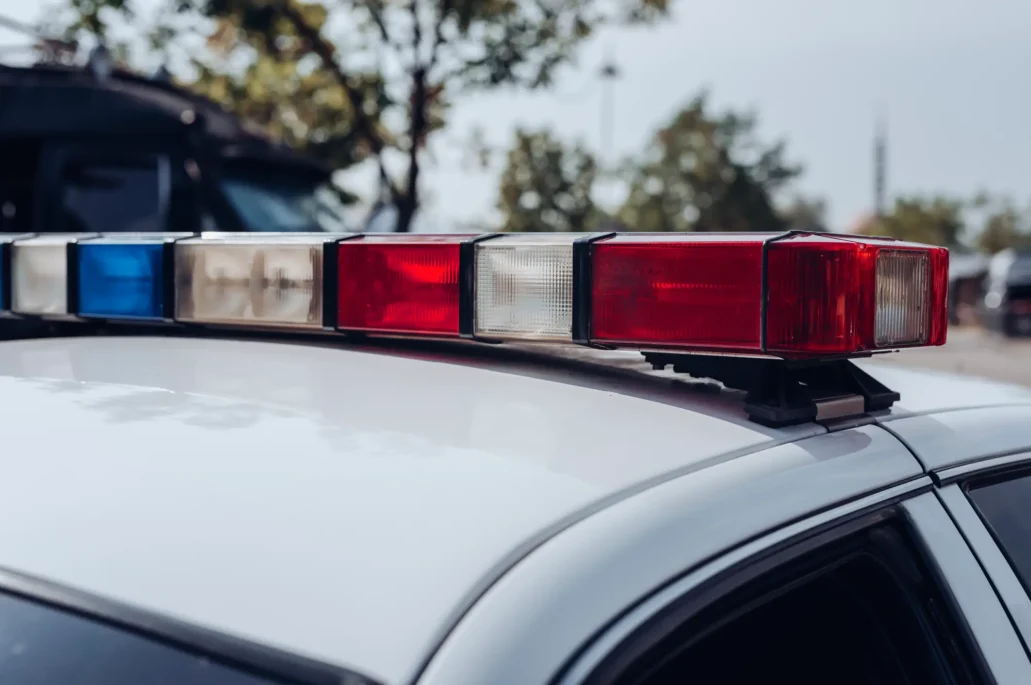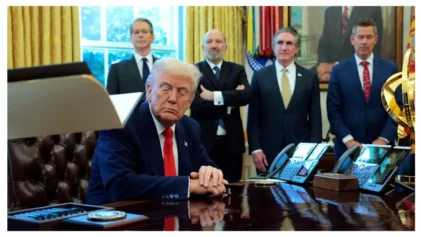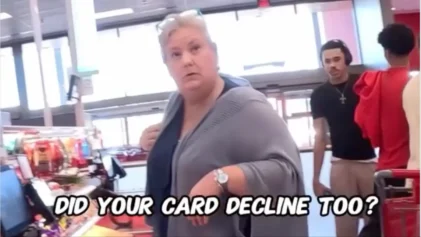In a stunning legal ruling, the nation’s most conservative federal appeals court ruled against the Houston Police Department for wrongfully arresting a Black security guard who made a citizen’s arrest five years ago while trying to stop an alleged drunk driver from fleeing the scene of an accident.
The three-judge panel of the 5th Circuit Court Court of Appeals decided that qualified immunity does not extend to officers Michael Garcia and Joshua Few in the 2019 arrest of Austin Hughes, a former police officer working a part-time security gig, who called 911 to report a drunk driver, but as a result, found himself going to jail.
During the harrowing incident, the driver crashed into a highway median at about 2:30 a.m., jumped out of his vehicle, and the intoxicated man began weaving through traffic on foot. That’s when Hughes jumped into action, chasing down the suspect and placing him in handcuffs.

When HPD officers arrived, however, they freed the suspect in custody and began investigating Hughes for impersonating a police officer before arresting him two days later.
Consequently, Hughes spent 24 hours in jail, incurred significant expenses on a criminal defense attorney, and endured a three-month legal ordeal before prosecutors ultimately dropped the charges.
The scathing 21-page ruling, obtained by Atlanta Black Star, condemned the officers’ actions while emphasizing the importance of truthfulness by law enforcement authorities.
“This case does not involve excessive force or split-second decisions, or the chaos of a chase,” wrote appeals Judge Andrew Oldham, who authored the decision. “Rather it involves a simple, clearly established rule that all officers should know at all times … Do not lie.”
Judge Oldham, who previously worked as a top legal adviser for Gov. Greg Abbott before being appointed to the 5th Circuit by then-President Donald Trump, noted that police had evidence showing Hughes did the right thing.
Another woman driving on the same road that night called 911 and gave the same account about the reckless driver crashing and trying to run off.
The driver Hughes detained also confessed to being intoxicated and did not pass a field sobriety test. The incident report shows he claimed to police that he’d been drinking with Hughes at a flea market — calling Hughes “Jesse” — and that Hughes had been driving the intoxicated man’s truck back to Hughes’ home when the two men began arguing and crashed.
The incident report does not show how the drunk man accounted for the presence of Hughes’ own Jeep at the crash scene.
However, Officer Garcia omitted or altered much of this information from the sworn affidavit he submitted to support the criminal charges against Hughes.
Meanwhile, the officers fell for the suspect’s story — that Hughes had assaulted him in a fit of rage and falsely claimed to be a police officer during the incident.
During the court proceedings, the city’s legal team contended that Garcia and Few should be shielded by “qualified immunity,” a broad legal protection for police officers. However, the 5th Circuit rejected this argument, with Judge Oldham explaining that the police’s apparent disregard for the truth undermined their claim to immunity.
“Qualified immunity,” established by the Supreme Court in the 1967 case of Pierson v. Ray, shields police officers and other officials from lawsuits arising from their official actions, even when those actions result in serious harm or loss for individuals.
However, this legal doctrine has faced mounting criticism in recent years, with appellate courts increasingly ruling in favor of plaintiffs, signaling a slight shift in how qualified immunity is applied in different cases.
Generally, the legal doctrine protects public officials unless their actions violate clearly established precedents showing their actions were unconstitutional. It shields officials from civil lawsuits unless their conduct violates a “clearly established” statutory or constitutional right of which a reasonable person would have known.
Back in April, the same 5th Circuit cited qualified immunity when it dismissed a lawsuit by a Black mother in the Dallas area who claimed she was mistakenly targeted during a no-knock raid at the wrong house five years ago.
However, the recent decision by the 5th Circuit in Hughes’ case shows that there are limits to how far judges are willing to go to shield government officials from legal accountability.
Hughes’ defense lawyer, Paul Doyle, welcomed the ruling in light of recent revelations about Houston police shelving tens of thousands of serious crime investigations using the internal code “Suspended — Lack of Personnel.”
“You just wonder what motivated those officers,” Doyle said, according to the Houston Chronicle. “We can’t get people to respond to aggravated robberies and murders, but they’re gonna go after a good Samaritan who happens to be African American and go out of their way to arrest him when crime is rampant in our city. Like, actual crime.”
Garcia and Few continue to serve as patrol officers for the Houston Police Department.
Interestingly, both officers are recognized on the department’s website for receiving a commendation in 2020 — a year after the incident involving Hughes — from a local citizen who praised their “kindness, compassion, and professionalism” during a wellness check.
HPD declined to reveal whether Garcia and Few faced internal discipline for Hughes’ wrongful arrest.
However, Doug Griffith, president of the Houston Police Officers’ Union, stated that he does not believe any disciplinary measures were taken, saying he was confident the officers did nothing wrong.
He also noted that in Houston, police cannot charge anyone with a crime without permission from the Harris County District Attorney’s Office.
“An officer can’t just make an arrest on their own,” he said, according to the Chronicle. “We have to contact the DA’s office, present the facts to them, and then they are the ones that determine what charges should be filed.”
Initially, Hughes’ legal action named Harris County District Attorney Kim Ogg as a defendant. However, a lower court ruled that she could not be held liable for the officers’ actions. Nonetheless, the 5th Circuit Court described the charges against Hughes as “frivolous,” suggesting Ogg should have set the case aside immediately.
Documents indicate that her office ultimately opted to dismiss the case against Hughes, acknowledging that “no probable cause exists at this time to believe the defendant committed the offense.”
“We agree with the Fifth Circuit’s opinion,” said Joe Stinebaker, a spokesman for Ogg’s office, in a statement. “The decision to file charges was based solely on information provided by the arresting officer. The officer failed to inform the prosecutor that the defendant was a former police officer trained in DWI detection who truly acted as a Good Samaritan.”
The 37-year-old Hughes, originally from Detroit, served as a police officer in Auburn Hills, Michigan, for two years before resigning from the force in 2014. Seeking a less stressful career and desiring to be closer to family in the area, he made the decision to relocate to Houston.
On March 23, 2019, Hughes was behind the wheel for Uber and simultaneously working a part-time security job at a bar.
After collecting his paycheck from the bar and picking up two Uber passengers, he was driving his Jeep Wrangler south on Interstate 610 around 2:37 a.m. when he observed a white pickup truck swerving erratically ahead of him.
Hughes immediately put on his blinkers and dialed 911.
“I’m a former police officer; I’m from Michigan. … This guy is running between like, three or four lanes,” he said on the call. At one point on the call, one of Hughes’ passengers can be heard in the back seat shouting “Oh God!” in response to the swerving vehicle, while Hughes told the dispatcher, “They’re gonna kill somebody.”
After the pickup crashed, Hughes pulled over behind it.
Hughes approached the disabled pickup to take the driver’s keys and returned to his Jeep to wait for the police.
Moments later, the man inside the truck got out and darted onto the freeway.
“Stay in the car, bro, stay right there!” Hughes yelled, which can be heard on the 911 call.
He rushed out to restrain the driver, using the handcuffs he kept in his car for his security job to prevent the man from fleeing and potentially causing another accident.
Meanwhile, the Uber passengers got out and opted for a different ride.
Hughes’ action is commonly referred to as a “citizen’s arrest.”
In Texas, civilians who believe they have directly witnessed a felony crime in progress or “an offense against the public peace” are permitted to detain the alleged perpetrator as long as they promptly notify the police – which is precisely what Hughes did, according to records.
Courtney Warren, the civil lawyer representing Hughes, noted that citizen’s arrests are not unusual.
She referenced several cases where judges ruled that citizens had lawfully detained drunken drivers, including an instance where a bar manager and his colleague used handcuffs to prevent someone from driving under the influence.
But when the officers arrived at the scene and saw Hughes holding the other man in handcuffs, they were immediately suspicious and turned on Hughes altogether as the handcuffed man began telling his side of the story.
Meanwhile, the cops allowed the original suspect to call family members to come pick him up.


